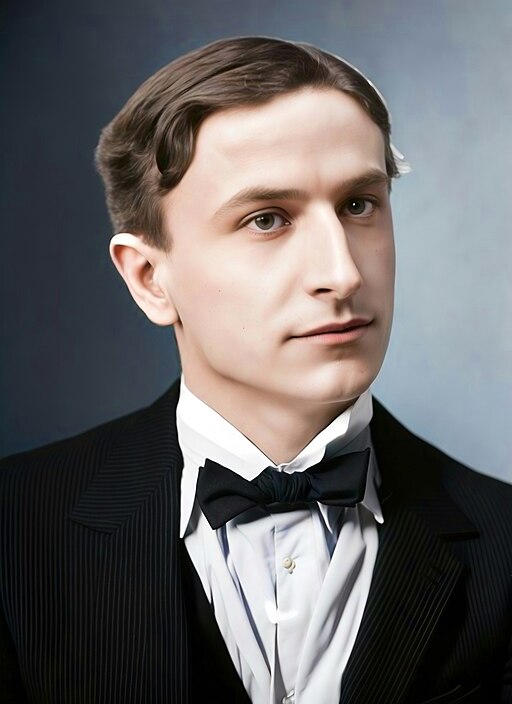Liberty Matters
Rehabilitating Böhm-Bawerk as Capital Theorist

I am grateful to Matt McCaffrey and my fellow commentators for the very stimulating conversation about capital theory. But I think that Böhm-Bawerk has not been fairly treated in the discussion. Peter Lewin downplays Böhm-Bawerk's subjectivism and implicates him in the Smithian tradition of capital theory, which focuses "on the physical components of the production process to the detriment of the process by which they are valued." Lewin may have ignored Böhm-Bawerk's first publication in which he laid conceptual foundations for his capital theory in a world pervaded with noncalculable, systemic uncertainty in which the facts and values related to future goods are a matter of subjective interpretation and conjecture.[17]
Böhm-Bawerk (1962, 87) argued that "economic science is not concerned only with today" because human beings develop "economic foresight" as soon as they begin to strive after the "objective means" for ensuring future well-being. Once this has occurred, "the future has gained a sure and important place in our economizing." Accordingly, "our economic behavior in the present" is "governed by the prospective presence of future needs just as if they were already upon us in the present."
Böhm-Bawerk referred to goods of "more remote order," conceiving of production "as a serial structure, or succession of orders of goods." This construction embodies the idea of causality, which is intrinsic to the goods concept. According to Böhm-Bawerk (1962, 100):
All goods, by the very terms of the concept "good" itself, have one feature in common. That feature is that they are capable of constituting a link in the chain of cause and effect—the causal chain … between human needs and the satisfaction of those needs. Now this causal relation may be direct or remote; it may be immediate or it may function by way of one or more intermediate links of the chain…. [T]he transmission of the utility takes place in such manner that from goods of remote utility there are first produced other goods which are closer by one stage to the (final) stage of direct utilization....
Ultimately every link in the causal chain of goods derives its economic significance "from one and the same source, namely, the want." Although the value of goods of remoter orders is a "derived value," it is also "prospective in nature" and "anticipates the facts." The "anticipatory" character of the value of remoter-order goods derives from the fact that they must be transformed through time-consuming processes into goods of progressively less remote orders before they can finally release their future utility.
Böhm-Bawerk (1962, 95) thus describes capital value as the subjective outcome of the futurity and anticipation inherent in economizing. The present value of goods of remoter order is the outcome of an individual and uncertain process of "wealth computation." It is "an operation replete with subjective interpretations and insinuations." It is designed to give the economizing subject more than a mere listing of "the things comprising [his] wealth"; rather, it provides "some estimation of their significance, their economic importance … their value, in order that we may add them up and compare them with other accumulations of wealth (Böhm-Bawerk 1962, 86). The uncertain, subjective, and fluctuating "capital values" that are summed up into an individual's wealth are thus distinct from his objective possession of presently existing, concrete goods of remoter orders that constitute "capital."
Böhm-Bawerk (1962, 105) explicitly distinguished between capital value and capital:
All capital value is an anticipation of the value of the prospective consumptible end-product. Production, of which capital is the tool and the material (e.g., machines and raw materials), is the condition, the justification and the materialization of the value which has temporarily been ascribed to capital goods; it is the process by virtue of which the future value of a capital good is transmuted into the present worth of the matured consumptible end-product, the process which leads to capital's fulfillment and justification.
Elsewhere Böhm-Bawerk (1962, 97) differentiated "the materials of wealth" from the "forms of wealth." The former include concrete capital goods as well as stored consumer goods and "are patently identical with the genuine goods which in actual fact lend support to our life and our well-being." The latter are the appraised values of our diverse rights and relationships that bear some probability of the promise of future renditions of service and are "mere creatures of our subjective interpretations."
It is true that Böhm-Bawerk did not advance to Mises's insight that capital is "the central notion of economic calculation." But Böhm-Bawerk's discussion of the distinction between capital and capital value and the subtle balance between objective and subjective factors in capital theory certainly is a foreshadowing of Mises's theory.
Endnotes
[17.] Böhm-Bawerk's neglected monograph was published in 1881. Unfortunately, its English translation bears a misleading title, which misrepresents its content and is buried in a book of shorter essays by Böhm-Bawerk (1962).
Copyright and Fair Use Statement
“Liberty Matters” is the copyright of Liberty Fund, Inc. This material is put on line to further the educational goals of Liberty Fund, Inc. These essays and responses may be quoted and otherwise used under “fair use” provisions for educational and academic purposes. To reprint these essays in course booklets requires the prior permission of Liberty Fund, Inc. Please contact oll@libertyfund.org if you have any questions.